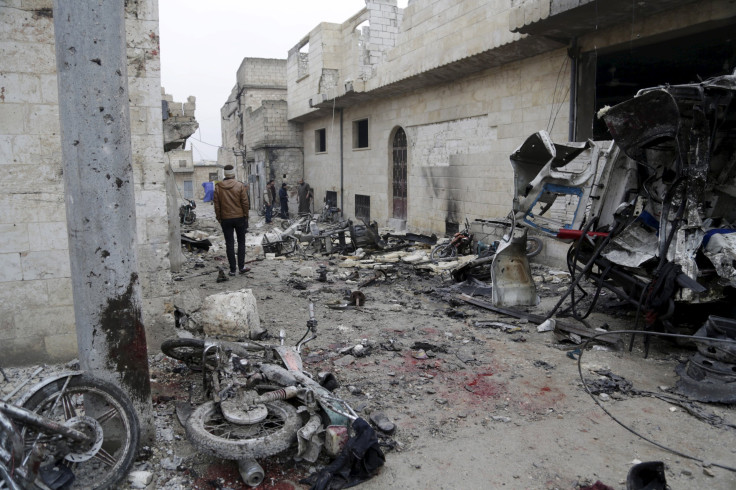Syria Ceasefire Plan Moves Forward As 100 Trucks From Damascus Deliver Aid

Syrians living in bombed out, isolated towns are finally receiving the aid humanitarian groups working on the ground have demanded for more than a month, the U.S. State Department said Wednesday. More than 100 aid trucks from Damascus, the capital, delivered supplies to seven besieged towns, including Medaya and areas throughout Idlib province, Wednesday evening.
"This is great," said Mark Toner, spokesman for the State Department. "But the Syrian regime should have allowed this access long ago." Toner described the humanitarian relief as "temporary" and said he did not know how long it would last. The U.N. estimates there are roughly 486,700 people in 15 besieged areas of Syria and 4.6 million people in isolated areas.
The deliveries of relief supplies come as world leaders, including those from the U.S., Russia and Iran, try to implement what is being called a "cessation of hostilities." The plan, proposed in Munich last week, would require all parties to stop attacking each other, but it will leave open the possibility of targeting the Islamic State group and the Nusra Front, the al Qaeda offshoot in the country. The halt to fighting was supposed to take place in tandem with the delivery of humanitarian aid.
No, it's not a picnic. It's Syrians displaced by intense Russian bombardment.
— Kenneth Roth (@KenRoth) February 12, 2016
Azaz in Aleppo province. via @UNOCHA pic.twitter.com/oPSln3SXBW
So far, though, the fighting has shown no sign of slowing.
The Syrian regime, backed by Russian planes, carried out an intense bombing campaign against U.S.-backed rebels in Aleppo, the country's largest city. Russia denies that it is targeting the rebels and says it is only bombing the Islamic State group, also known as ISIS. But civilians living in Syria, as well as doctors, have posted photos on social media this week that show Russian bombs falling on hospitals. And a series of hospitals were bombed this week, killing 50 people in total.
The intense bombing lead to the exodus of tens of thousands of Syrians, most from Aleppo. They fled to the Bab al Salama border crossing north of Aleppo, where many are still waiting in makeshift camps. Until now, Turkish authorities have prevented the majority of Syrians from passing into Turkey.
Political parties involved in the Syrian conflict, including Russia and the U.S., will meet in Geneva Feb. 19 to try to come to an agreement on the official implementation of the cessation of hostilities and a long-term political solution to the conflict.
© Copyright IBTimes 2024. All rights reserved.




















